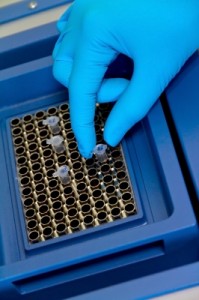By nutritionist Megan Crockart
As a nutritionist my clients often are surprised that I have access to some of the same pathology testing as their GP’s. Many naturopaths and nutritionists now use pathology testing to check a multitude of health concerns or to simply monitor people’s health.
In my clinic I like to use various testing to check things and also monitor some things. I thought it might be useful to outline some of the tests I use:
Allergy/Intolerance testing
This would be one of the tests I use the most. I usually use a testing company that checks for antibodies for 96 different foods, although there can be variations to this and up to 112 foods can be tested at one time and even herbs and spices can be looked at (24 of each). These tests can determine if there is an allergy to a particular food or whether there is an intolerance or sensitivity to a particular food. These tests are either done by a blood prick kit easily done at home, or going into a pathology to have blood drawn.
A new test on the market, and of particular interest to me, is a comprehensive blood test that is looking closer at antibodies for Coeliacs disease, but also looks more closely at gluten intolerance and wheat allergy – which has never really been explored before. Before undertaking this blood test, consuming gluten is recommended for a minimum of 2 weeks, 4 weeks is more accurate, so this can be a downfall for those that have been avoiding gluten.
Vitamins/Minerals/Amino acids
Various vitamins, minerals and amino acids can be tested for and not only what our levels are, but there are also tests to show us how they are actually working within the body and whether they are working in certain pathways as they should be. Vitamin D has become the most ordered new test in Australia and I feel it is an important vitamin to have checked as many Australian’s are vitamin D deficient (but not everyone needs to be on a vitamin D supplement). Vitamin D is a very important nutrient which I will go into in more detail in a coming article. I will also say the same for iron, this is another one that I believe checking levels for and how it is storing is important before taking iron supplements.
Other general tests include a full blood test, the standard testing GP’s will usually use, plus checks on cholesterol, lipids, blood glucose levels and much more.
Hormones
There are various hormones that can be tested for and include thyroid, reproductive (both male and female), adrenal hormones (such as cortisol). Some of these tests are more accurate via saliva than blood, but both options are available.
Stool Analysis
Most people squirm at the idea of giving a stool sample, but it can shed light on many issues, particularly if the balance of bacteria (good and bad) is out of whack and/or if there are parasites or yeasts lurking about. It can also show how well your digestive system is actually working.
Gene Testing
There is now a lot more information and better testing when it comes to our DNA and therefore there are now gene tests on the market that can give some insight into various genes. They aren’t cheap, but are definitely not as expensive as they used to be.
Environmental pollutants and toxins
There are various tests to check how much toxins we hold in our body and what environmental pollutants we may be storing which could be impacting on our health. Most people familiar with naturopaths will have heard of the hair analysis mostly used to see what heavy metals are being stored. The hair analysis still is a great test to use, but there are also urine testing to shed further light.
No testing through a natural health practitioner is covered by Medicare or private health unfortunately, so they are additional costs, but can prove to be very worthwhile.
If you have any questions about certain tests, please contact Megan Crockart for a consultation on 0417 679 287 or megan@balancingnutrition.com.au.

